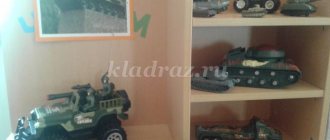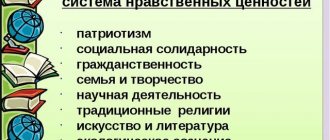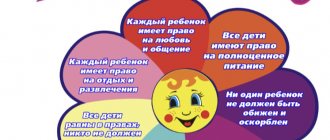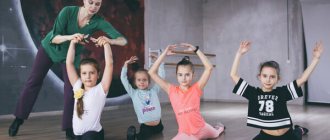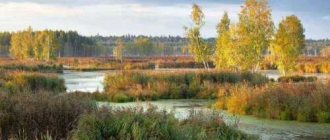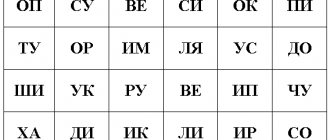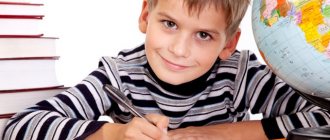Work program for patriotic education of preschool children
Elena Kondratyeva
Work program for patriotic education of preschool children
1. Target section 1.1. Explanatory note
According to the Federal Law “On Education in the Russian Federation”
dated December 29, 2012 No. 273-FZ (hereinafter referred to as the Federal Law
“On Education in the Russian Federation”
),
preschool education is the level of general education along with primary general, basic general and secondary general education. It is in preschool childhood that the value systems for the development of the child’s personality, the foundations of his identity, attitude towards the world, society, family and himself are laid. Therefore, the mission of preschool education is to preserve the uniqueness and intrinsic value of preschool childhood as the starting point for inclusion and further mastery of various forms of life activity in a rapidly changing world, to promote the development of various forms of child activity, and to convey social norms and values that promote positive socialization in a multicultural, multinational society.
Patriotic education of preschoolers is not only the education of love for one’s home, family, kindergarten, city, native nature, the cultural heritage of one’s people, one’s nation, and a tolerant attitude towards representatives of other nationalities, but also the education of a respectful attitude towards the worker and the results of his work, native land, defenders of the Fatherland, state symbols, state traditions and national holidays.
The concept of modernization of Russian education defines priority tasks, the solution of which requires the construction of an adequate system of psychological and pedagogical support. One of these tasks is the patriotic education of the younger generation.
The federal state educational standard for preschool education sets goals for patriotic education : creating conditions for the formation of the foundations of patriotic consciousness of children , the possibility of positive socialization of the child, his comprehensive personal, moral and cognitive development, development of initiative and creativity based on activities appropriate for preschool age .
The transformation of Russia into a post-industrial society, the processes of informatization, the increasing importance of the media as an institution of socialization, a wide range of information and educational resources open up new opportunities for the development of a child’s personality, but at the same time they carry various kinds of risks. In this regard, the problem of patriotic education of children and youth becomes one of the most pressing. At the same time, it acquires new characteristics and, accordingly, new approaches to solving it as an integral part of the holistic process of social adaptation, life self-determination and personality formation.
Patriotism is love for the Motherland, devotion to one’s Fatherland, the desire to serve its interests and readiness, even to the point of self-sacrifice, to defend it. Patriotic education of a child is the basis for the formation of a future citizen.
The work program for the patriotic education of children of senior preschool age (hereinafter referred to as
the Program ) was developed on the basis of the requirements of the Federal State Educational Standard for Preschool Education to the structure of the main general educational program of preschool education , an approximate basic general educational program of preschool education “From birth to school”
edited by N. E, Veraksa, T. S. Komarova, M. A. Vasilyeva, lesson systems by Aleshina N. V. “Familiarization
of preschoolers with the surrounding and social reality.”
Addressee of the Program . The program is intended for children 5-7 years old .
Timing of the Program . The program lasts two years.
Implementation time (organized educational activities)
for
children of the senior group - 10 hours, for children of the preparatory group - 12 hours.
The form of organization is full-time.
Features of the organization of activities - The program is implemented in the form of projects not only in organized educational activities, but also in the joint activities of the teacher with children, during regime moments, in independent children's activities, in interaction with families, which contributes not only to the patriotic education of children , but also formation of relationships with adults and peers, comprehensive development of the child’s personality.
1.2. Relevance of the Program .
Childhood is a daily discovery of the world. It is necessary that this discovery becomes, first of all, knowledge of man and the Fatherland, so that the beauty of a real person, the greatness and incomparable beauty of the Fatherland enters the child’s mind and heart.
Childhood is a crucial stage in the development of personality and its moral sphere.
The content of the Federal State Educational Standard notes the urgent need to intensify the process of instilling patriotism in preschoolers . Children at this age are very inquisitive , responsive, and receptive . They easily respond to all initiatives and are able to sincerely sympathize and empathize. For the educator , this is a time of fertile soil. Indeed, at this age great opportunities arise for the systematic and consistent moral education of children . The formation of the child’s spiritual foundation, emotions, feelings, thinking, processes of social adaptation in society takes place, and the process of realizing oneself in the world around us begins. It is this period of a person’s life that is most favorable for the emotional and psychological impact on a child, since his images are very bright and strong, and therefore they remain in memory for a long time, and sometimes for a lifetime, which is very important in the education of patriotism .
A favorable pedagogical environment created in a timely manner helps to instill in children the foundations of patriotism and citizenship . The concept of patriotism is diverse in its content - it is respect for the culture of one’s country, and a feeling of inseparability with the outside world, and pride in one’s people and one’s Motherland.
From the first years of life, a child must love his native land, culture with his heart and soul, experience a sense of national pride, which is called “putting roots in his native land”
.
The feeling of the Motherland... it begins in a child with his relationship to his family, to close people - to his mother, father, grandmother, grandfather. These are the roots that connect him with his home and immediate environment. The feeling of the Motherland begins with admiration for what the child sees in front of him, what he is amazed at and what evokes a response in his soul... And although many impressions are not yet deeply realized by him, but, passed through children's perception , they play a huge role in the formation of the personality of a patriot . of considerable importance for instilling in children interest and love for their native land. Gradually, the child gets to know the kindergarten, his family, his street, the city, and then the country, its capital and symbols. Hometown... We must show the child that his hometown is famous for its history, traditions, sights, monuments, and best people. To be a citizen, a patriot , is certainly to be an internationalist. Therefore, nurturing love for one’s fatherland and pride in one’s country must be combined with the formation of a friendly attitude towards the culture of other peoples, towards each person individually, regardless of skin color and religion.
Preschool age , according to psychologists, is the best period for the formation of love for one’s small homeland.
1.3. Goal and objectives of the Program
Goal: Development in preschoolers of citizenship , patriotism as the most important spiritual, moral and social values, readiness for active manifestation in various spheres of society.
Objectives: - formation of love for the native land (involvement in one’s home, family, kindergarten, city)
;
— formation of spiritual and moral relations;
— formation of love for the cultural heritage of one’s people;
- nurturing a love of respect for one’s national characteristics;
— self-esteem as a representative of one’s people;
- to form a cognitive interest in the world and, based on comparison, expand ideas about one’s homeland;
- a tolerant attitude towards representatives of other nationalities, peers, parents, neighbors, and other people.
1.4. Pedagogical principles and approaches to the formation of the Program . The basis for the education of moral and patriotic feelings in preschool children is the following principles:
the principle of person-oriented communication is the individual-personal formation and development of a person’s moral character. During the learning process, children act as active explorers of the world around them together with the teacher, and do not just passively adopt experience. Partnership, participation and interaction are priority forms of communication between teachers and children;
the principle of thematic planning of material involves presenting the studied material in thematic blocks: native family, native nature, native culture, native city, native country;
the principle of visualization is a broad presentation of visuals corresponding to the material being studied: illustrations, photographs of landscapes, monuments, attractions, etc.
The principle of consistency involves planning the cognitive material being studied sequentially (from simple to complex, so that children acquire knowledge gradually, in a certain system.
Principles of moral and patriotic education .
Interpenetration of educational tasks .
Coordinated, purposeful work of all participants in the educational process (family, child, teaching staff)
in a specially organized development environment.
A targeted approach to project participants, involving the use of forms and methods of work taking into account age and individual characteristics.
Using the social experience of past generations (national and family traditions)
.
Consistency in the moral and patriotic formation of personality: from close to distant, from small to great (my house - my street - my city - my country - my planet)
.
1.5. Targets at the stage of completion of the Program
By age seven:
• the child masters the basic cultural methods of activity, shows initiative and independence in play, communication, construction and other types of children's activities. • the child has a positive attitude towards the world, other people and himself, and has a sense of self-esteem. Actively interacts with peers and adults, participates in joint games. Able to negotiate, take into account the interests and feelings of others, empathize with failures and rejoice in the successes of others, adequately expresses his feelings, including a sense of self-confidence, tries to resolve conflicts;
• the child has imagination, which is realized in various types of activities and, above all, in play. Knows different forms and types of games, distinguishes between conditional and real situations, follows game rules;
• the child has a fairly good command of oral speech, can express his thoughts and desires, use speech to express his thoughts, feelings and desires, construct a speech utterance in a communication situation, can highlight sounds in words. The child develops the prerequisites for literacy;
• the child is capable of volitional efforts, can follow social norms of behavior and rules in various types of activities, in relationships with adults and peers, can follow the rules of safe behavior and personal hygiene;
• the child shows curiosity, asks questions to adults and peers, is interested in cause-and-effect relationships, and tries to independently come up with explanations for natural phenomena and people’s actions. Tends to observe, experiment, build a semantic picture of the surrounding reality, has basic knowledge about himself, about the natural and social world in which he lives. Familiar with works of children's literature, has basic understanding of wildlife, natural science, history, etc. Capable of making his own decisions, relying on his knowledge and skills in various activities.
1.6. Planned results of mastering the Program :
Child 5–6 years old:
• Knows his home address, name of the city, district, region.
• Has an idea of the symbolism of the city, district, region.
• Knows the names of nearby streets.
• Has an idea about the life and way of life of the people living in their hometown.
• Recognizes city sights in photographs and be able to talk about them.
• Knows the professions of his parents.
• Knows the rules of behavior in nature.
• Able to talk about the inextricable connection between man and nature, the importance of the environment for a healthy lifestyle of people.
• Distinguishes between some types of troops.
Child 6–7 years old
• Has brief information about the history of the city, district, region.
• Knows his date of birth, his patronymic, home address, telephone number; parents' names and patronymics; kindergarten address.
• Knows the coat of arms and flag of the Russian Federation and the Moscow region.
• Has an understanding of the President and the Government of Russia; about warriors-defenders of the Fatherland, about WWII veterans.
• Knows poetry, works of art by local poets and artists.
• Knows the rules of safe behavior in nature and on the streets.
• Has a basic understanding of nature conservation, nature reserves, and wildlife sanctuaries in the Moscow region.
• Understands involvement in the social and environmental environment, and recognizes himself as a full member of society.
• Has an idea about his native land; about people of different nationalities, their customs, traditions, folklore, labor, etc.; about the Earth, about people of different races living on our land; about the work of adults, their business and personal qualities, creativity, public holidays, school, library, etc.
Forms for tracking and recording results.
Monitoring is carried out in accordance with the Child’s Individual Development Cards at the beginning of each school year (October)
and at the end
(May)
.
Form for recording results – Child’s individual development map.
* Workshops, consultations for parents, open screenings, exhibitions of products of project activities are organized. A section is being maintained on the website.
work plan for the group is maintained , which reflects the work on patriotic education .
1.7. Logistics of the Program .
To implement the Program it is necessary :
— Corners for patriotic education in groups ;
— Cabinet of Patriotic Education ;
— Visual and demonstration material: presentations, illustrations, photographs, paintings, slides on the problem;
— Library of books with patriotic content ;
Methodical:
— theoretical and methodological literature,
- periodicals,
— materials on best teaching practices.
Materials for classes on patriotic education 1 . Reproductions of paintings
2. Methodological literature
3. Visual and teaching aids
4. Illustrations of various types of troops, portraits of heroes
5.Electronic educational resources: laptop projector, presentations, films
6. Audio recordings
7. Maps, atlas, globe
8. Fiction
9. State symbols
2. Organization of activities under the Program :
To implement the Program, it is necessary , first of all, to create a social situation for the development of children in kindergarten . The social situation of development is the social conditions in which the psychological and behavioral development of a person occurs according to the following indicators:
1. organizing the life of children in a group
2. style of relationship between the teacher and children
3. social qualities and cooperation skills in children
4.involvement of parents in the educational process.
Organization of children's life in a group .
1. The children's life and routine .
A rationally designed daily routine contributes to the formation of “dynamic stereotypes”
.
It is important to remember that inadequate stress on the child’s body leads to slow development and deviations in social life. development. The same consequences result from a reduction in the duration of walks , time for independent activities, and a lack of physical activity.
2. Constant emotional and practical interaction with adults and peers.
3. A developing subject-spatial environment has been created.
4. The group environment is psychologically comfortable for children .
Style of relationships between teachers and children .
Democratic style - the teacher , using various arguments, convinces the child of the advantages of a particular action. In this case, the choice is left to the child. This type of relationship requires an individual approach to children. It is this kind of unobtrusive care that children need most.
Developing social qualities and cooperation skills in children.
1. fostering in children a conscious attitude towards the norms of behavior in the society of their peers.
2. assistance in the exercise of rights by each child among his peers.
In professional activities, it is necessary to rely on age-related norms of behavior for children .
Interaction with parents.
It is necessary to involve parents in the educational process: consultations, workshops, information about the development tasks and achievements of the child, participation in projects.
Methods of patriotic education - One of the priority tasks of modern education is the transition to new technologies of training and education . One of the main and, probably, the most difficult tasks of a preschool educational institution is the development of the creative abilities of children and teachers . In my opinion, the source of interaction and co-creation between children and adults is design technology. The project method, as a form of organizing educational space, is innovative for preschoolers . It allows the child to act as a full partner in the pedagogical process based on the principles of cooperation. This is a method of pedagogically organized development of the environment by a child in the process of step-by-step and pre-planned practical activities to achieve the intended goals. — Targeted walks , excursions to places of military glory, to monuments, to the local history museum, etc.
— Stories from the teacher , conversations with children about the glorious history of their native country and hometown
— Observation of how people work on the territory of the kindergarten and in the city, how its appearance changes thanks to this work
— Demonstration of thematic slides, videos, illustrations
— Listening to thematic audio recordings, these could be the voices of birds of the Russian forest or the anthem of the Russian Federation
— Acquaintance with Russian folklore - fairy tales, proverbs, sayings, songs, games
— Acquaintance with folk art, embroidery, painting
— Acquaintance with the work of domestic writers, composers and artists
— Visiting thematic exhibitions or organizing them independently
-Participation in holidays
— Participation in feasible community service work
Forms of patriotic education
1. Various kinds of educational activities, studying state symbols of the Russian Federation, children gaining knowledge about the location, climate of their hometown, and its history. Various activities on the topic “Our native land”
2. Acquaintance of children with the culture and traditions of their native land, with the rituals of the Russian people, holding ritual holidays, excursions to the local history museum, organizing thematic leisure activities.
3. Fostering in children love and respect for their native nature, developing in them a sense of responsibility towards nature. It is necessary to strive to ensure that nature becomes clearer and closer to children . This is one of the important components of patriotism .
4. Introducing children to the heroic past of the Fatherland. Communicating to students the idea that people will always remember the terrible military events, honor the memory of those who died, and surround the people who defended their Motherland with attention and care. Conducting an annual month of military-patriotic education , organizing a drawing competition “Defenders of the Fatherland”
, conducting classes
“Heroes of War”
,
“Children-Heroes”
, as well as
“Courage Classes”
, in which children will address the exploits of Russian soldiers who showed unparalleled courage in those terrible times for the Fatherland.
Conducting a “Week of Remembrance”
with classes, conversations, arranging gifts and greeting cards for veterans, a
Victory Day
, and excursions to monuments.
5. Interaction with parents. Holding exhibitions of crafts and drawings with their participation on the theme “My Family”
,
“My mother is the best,”
etc., improvement of preschool educational institutions, holding competitions, holidays and matinees, joint work on the site.
Contact with parents and family is of great importance in solving the problems of moral and patriotic education . “Family Projects”
method is relevant .
Its essence is that each family, taking into account its own educational interests and priorities, prepares material on a pre-selected topic. The joint activities of adults and children contribute to their rapprochement and the emergence of common interests. Communication between parents and children is filled with cognitive, emotionally rich content.
Raising children, shaping a child’s personality from the first years of his life is the main responsibility of parents. The family influences the child and introduces him to the life around him. We, adults, must help children understand the importance of family, cultivate in children love and respect for family members, and instill in children a sense of attachment to family and home.
Project participants: middle school children, parents, group teachers.
Goal: to form the concept of “family” in children.
Tasks:
- To form in children ideas about the family and the profession of their parents.
- To instill in children love and respect for family members, to teach them to take care of loved ones.
- Improve the style of partnerships.
- Develop children's communication skills.
- Enrich parent-child relationships with the experience of joint creative activity.
Estimated results of the project:
- Children's knowledge of information about their family.
- Children's understanding of the importance of family in every person's life.
- The ability to organize role-playing games based on existing knowledge about the family.
- Showing care and respect to all family members.
II. Project development
- Inform project participants of the importance of this topic.
- Create a developmental environment: select materials, toys, attributes for gaming and theatrical activities; didactic games, illustrated material, fiction on the topic “Family”.
- Select material for productive activities.
- Draw up a long-term action plan.
III. Project implementation
Program section
Play activity
- Role-playing games “Family”, “Birthday”, “Shop”, “Hospital”.
- Didactic games “Who to be”, “Who needs what for work”, “Whose children?”
- Dramatization games based on the fairy tales “Little Red Riding Hood” and “Turnip”.
- Dramatizations “Three Mothers”, “A Tale for Mommy”.
- Construction games "Furniture for the home."
Cognitive development
- Thematic lessons “Rights and responsibilities in the family”, “My name”.
- Getting to know the professions of parents.
- Classification (furniture, dishes, household appliances, food).
- Creation of albums “My Family”, “Our Group”.
Speech development
- Compiling creative stories on the topic “My family”, “My pet”, “How I help at home”.
- Reading fiction on the topic “Family”: fairy tales “Sister Alyonushka and Brother Ivanushka”, “Geese and Swans”, “Cuckoo”.
- Proverbs and sayings about family.
- Conversations on the topic “What do my parents do?”
Productive activity
- Drawing on the themes “My family”, “Mom’s portrait”, “My home”.
- Making gifts for mothers, invitations, cards for family members.
- Photo exhibition “Family Hobbies”.
Working with parents
- Meetings with interesting people: Parents' stories about their profession.
- Project "Happy Day Off".
- Consultation “Mom, Dad, Me – a happy family or an unforgettable weekend.”
- Newspaper release for Mother's Day.
- The world of family hobbies: creating collections of fabrics, candy wrappers, buttons, badges, postcards.
IV. Project presentation
- Leisure “Family Evening”.
- Exhibition of projects “Happy Day Off”.
- Exhibition of drawings “My Family”.
V. Setting a new problem
- Drawing up a family tree.
Family leisure “Friendly Family Evening”
Goal: to draw attention to the family, to show its value for every person.
Tasks:
- Improve the quality of work of the kindergarten in interaction with parents.
- Strengthen attachment to your family members, form a moral attitude towards family traditions.
- Involve parents in joint activities with their children.
- Develop the creative abilities of adults and children in the process of joint activities.
- Enriching parent-child relationships with the experience of dialogic, emotionally rich communication.
Plan
- Teacher's speech.
- Presentation of “Happy Day Off” projects by parents.
- Game program for adults and children.
- Congratulations from children to their mothers.
Family is a source of inspiration, Where adults and children are nearby, In the family there is salvation from all adversity, Here everyone is responsible for each other. O. V. Tokmakova
1
Good evening, dear adults and children! We are pleased to welcome you to our meeting, which we called “Friendly Family Evening”. And today our conversation will focus on family leisure. We are looking forward to the upcoming weekend, when we can take a break from hard everyday life, from work, do our favorite thing, chat with children or get out into nature, to the countryside.
In general, a day off is an opportunity for longer communication between parents and children. The baby learns a lot of new things while walking with mom and dad around the city or going outside the city into nature. Even in the yard, a walk together will bring joy to your child: riding a bicycle, playing with a ball, outdoor games, and in winter - skating and sledding. Playing together helps children develop the skills they need to be prepared to face a challenging world in the future. In general, every family has its own traditions of spending weekends. And for those who don’t have them, it’s not too late to create them - it’s interesting and fun to spend them with your family. After all, a well-spent weekend not only contributes to the unity of all family members, but also helps the child understand how important he is to his parents, forms his connections with the outside world, and simply creates a great mood and gives a charge of vivacity for the entire working week, both for adults and and children.
2
We held a competition in the group on the theme “Happy Day Off” and now we invite you to tell us about your projects.
Parents giving presentations.
We thank the families who took part in the competition and will summarize its results a little later.
3
Now I suggest you play a little with your children. And the first joke game is called “Family Responsibilities.” You are invited to pull out a card recording your family responsibilities and find out what family responsibilities you will perform (cleaning the apartment; laundry; cooking; shopping; preparing animal feed; storing fuel; raising children; punishing children; encouraging children; the right to spending your last money; attending parent-teacher conferences; getting good grades; renovating your apartment; watching sports TV; reading newspapers; lying on the couch; reading love novels; getting your child ready for school; reading notations; having your head in the clouds).
The game “Family Responsibilities” is played.
The second competition for children is called “Guess the Fairytale Hero”.
Treats small children, Treats birds and animals, The Good Doctor looks at them through glasses... (Aibolit)
The grandmother loved the girl very much and gave her a red cap. The girl forgot her name. Well, tell me her name! (Little Red Riding Hood)
My father has a strange boy, unusual, wooden, on land and under water, looking for a golden key, sticking his long nose everywhere... Who is this? (Pinocchio)
He got tired of sitting on the window and he rolled into the forest along the path. (Kolobok)
A girl is sitting in a basket with a bear behind her back. He himself, without knowing it, carries her home. (Mashenka)
I’m an old lady no matter what: Both smart and young! With me everywhere is a rat named Lariska. (Shapoklyak)
The girl ran away from the prince so quickly that she even lost her shoe. (Cinderella)
The third competition for mothers and children is called “Gather Your Husband.” Men are like children. You have to keep an eye on them all the time. And if he’s going anywhere, he definitely needs a woman’s eye. So we propose to gather your husbands and dads:
- to work;
- to hunt;
- to the bathhouse;
- to the dacha.
Of course, their wives will collect them, and their children will help them. (Wives are given the same set of cards depicting objects that may be useful to their husbands in a given situation. Each wife “collects” her husband to one of the above listed places.)
List of things: soap; towel; washcloth; crackers; broom; electric shaver; Criminal Code; vobla; handicraft kit; jacket; boots; pen; binoculars; gun; cartridges; shampoo; towel; shovel; chainsaw; set of tools; cellular telephone; briefcase; set of linen; file; gun; handkerchief; money; flowers; toilet paper; Toothbrush; backpack; notebook.
Four families play at the same time.
The fourth competition is called “Remember the proverb about family.”
- The whole family is together... (so the soul is in place).
- A family without children, what... (a watch without a weight).
- Where there is love and advice... (there is no grief there).
- A husband without a wife is... (like a goose without water).
- What is the treasure for, if... (there is harmony in the family).
- Each hut...(its own rattles).
- A family is strong when... (one roof over it).
- Rotten the tree while it bends, teach the child... (while he listens).
- The family pot... (always boiling).
You guys are great and did a great job.
4
This weekend our country celebrates Mother's Day. The children and I also prepared congratulations for you, mother.
Children's performance.
1st child. Who is your favorite person in the world? Children will immediately say this. Go around the whole wide world, There is no better mother in the world.
2nd child. There are so many mothers here and there: The frog has a mother, And the chicken has a mother, And the calf has a mother. But the best one is mine!
Dramatization "Three Mothers"
A girl plays with a doll.
Girl: Oh, you’re a daughter, daughter Masha, You haven’t eaten your porridge again, Stop upsetting your mother (points to yourself), Let’s not go for a walk again (shakes a finger).
The girl's mother enters.
Mom: Tanya, put away the toys, get out your pillow. Stop upsetting your mother (points to himself), You should be sleeping soundly. Is everything in the briefcase? Everything is fine? Don't forget your notebooks tomorrow! (shakes his finger).
Grandma comes in. The girl leaves the doll and takes the pillow. Grandmother and mother step aside.
Grandmother: Sveta, you washed the dishes, you forgot to put the cups in the closet. And she scolded the child, Better give her a blanket! Stop upsetting your mother (points to himself), I had to clean everything up (shakes his finger).
Girl: It’s not easy to be mothers, And I’ll tell you straight: At any age, we all need our mother!
Fairy tale for mommy
Narrator: An ordinary hedgehog lived in the forest near the lawn. One day an extraordinary story happened to him. Look: The hedgehog went out onto the lawn... and saw Flowers.
Hedgehog: Fr-fr... hello, flowers, fr-fr... Flowers: Good afternoon... Good afternoon... Hedgehog: Let's go, please, congratulate... fr-fr... my mom on the holiday. Flowers: We agree, yes, yes, yes... But how to get there? Narrator: Suddenly a Fox jumped out into the clearing. It's so big. She saw the Hedgehog and said: Fox: What a delicious yum-yum... Meeting yum-yum... I'm um-am for you now... Hedgehog: Ay, fr-fr, I'm afraid! Help! Narrator: Only the Flowers were not afraid, but quickly surrounded the Hedgehog and hid him from the Fox. This is how the Hedgehog turned into a flower meadow. The Fox looked for the Hedgehog among the Flowers, did not find it, and ran on. And when the hedgehog came home, his Mom said: Mom: What beautiful Flowers, but where is my beloved Hedgehog? Narrator: Then the Hedgehog came closer, kissed Mom - and said this: Hedgehog: And I’m here, fr-fr, happy holiday to you, mommy!
3rd child. I will give my mother a flower for the holiday, I will make this daisy myself. Mom will wake up and see a flower. He will say: “What a miracle you are, son!”
Children give their mothers flowers made with their own hands.
And now the last task awaits you. You have drawing materials on your tables. And now, together with your children, we invite you to depict your family on the palm of your hand. While you are drawing, we will sum up the results of the competition. Awarding families for creativity, for a modern approach, for imagination, for originality, for skill, for sincerity and other nominations.
We wish you many more happy weekends!
